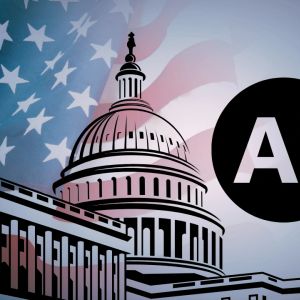
The White House’s new AI Action Plan would block federal dollars from states that impose heavy‑handed rules on artificial intelligence, the administration said. Hidden within the strategy unveiled Wednesday is an initiative that would cut AI funding to any state with “burdensome” rules. However, the 28-page outline clarifies that thoughtfully crafted legislation is acceptable as long as it avoids hindering innovation. “AI is far too important to smother in bureaucracy at this early stage, whether at the state or Federal level,” the plan states. It was written by White House Crypto Czar David Sacks, Secretary of State Marco Rubio, and Office of Science and Technology Policy Director Michael Kratsios. Under this guidance, agencies would check each state’s AI policy before awarding grants or financial support. They would have the authority to cut or withhold funds they think a state’s rules would weaken federal support. It also urges the FCC to assess whether any state‑level AI laws clash with its regulatory jurisdiction. Congress has seen parallel proposals. A House bill called the “Big Beautiful Bill” would ban states from setting AI rules for ten years, and Senator Ted Cruz’s plan would tie federal funding to states rolling back tough AI regulations. President Donald Trump described the initiative as the biggest move so far for a sector he believes will reshape the global economy. He’ll sign orders directing the U.S. International Development Finance Corporation and the Export‑Import Bank to promote American tech abroad, and requiring any large language models used by federal agencies to meet neutrality and fairness standards. Over 10,000 public comments shape Trump’s AI Plan Critics say the plan favors big tech companies over the public “The White House AI Action plan was written by and for tech billionaires, and will not serve the interests of the broader public,” said Sarah Myers West, co‑executive director of the AI Now Institute. West added, “The administration’s stance prioritizes corporate interests over the needs of everyday people who are already being affected by AI.” That approach is different from President Joe Biden’s 2023 executive order establishing federal AI safety and security standards. Trump revoked that order on his first day in office and subsequently issued a new order mandating faster AI advancement, eliminating ideological bias, and opening the framework to public feedback. Officials say more than 10,000 public comments shaped the plan as mentioned in a BBC report. Furthermore, AI regulation became a major point of debate in talks over Trump’s budget bill, which Congress approved earlier this month. The administration also worked to grow America’s AI systems at home and abroad. Following his inauguration, Trump announced a joint venture, Stargate, partnering with SoftBank, Oracle, and OpenAI, to develop roughly $100 billion in data center resources. However, the project has been stalled for 6 months . In May, he traveled with tech leaders to Gulf countries to secure AI infrastructure deals . Trump also took AI measures abroad. He first blocked exports to Huawei and other Chinese firms to slow their AI progress, then relaxed some limits on selling Nvidia and AMD chips to China so U.S. companies could compete better. Cryptopolitan Academy: Tired of market swings? Learn how DeFi can help you build steady passive income. Register Now


